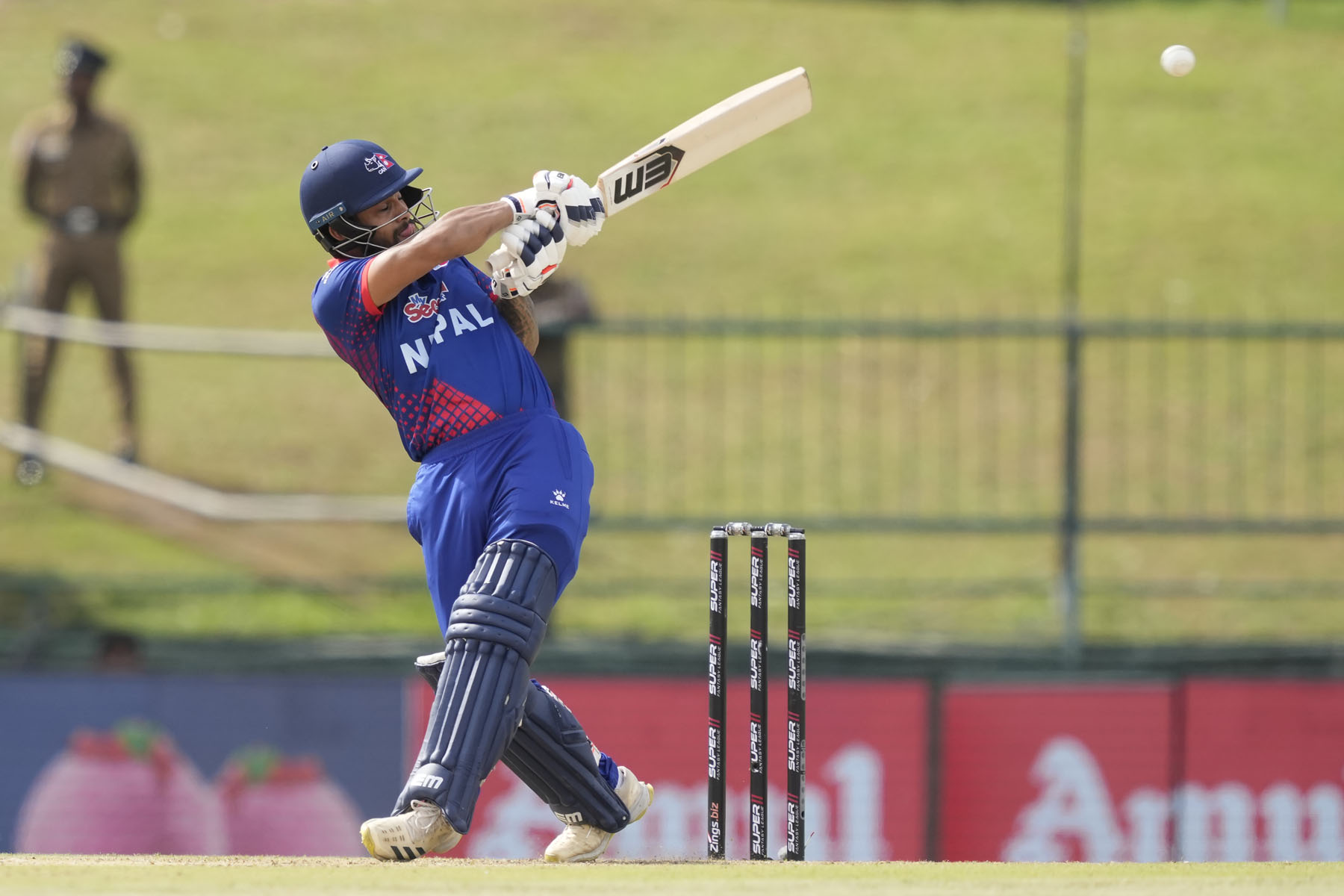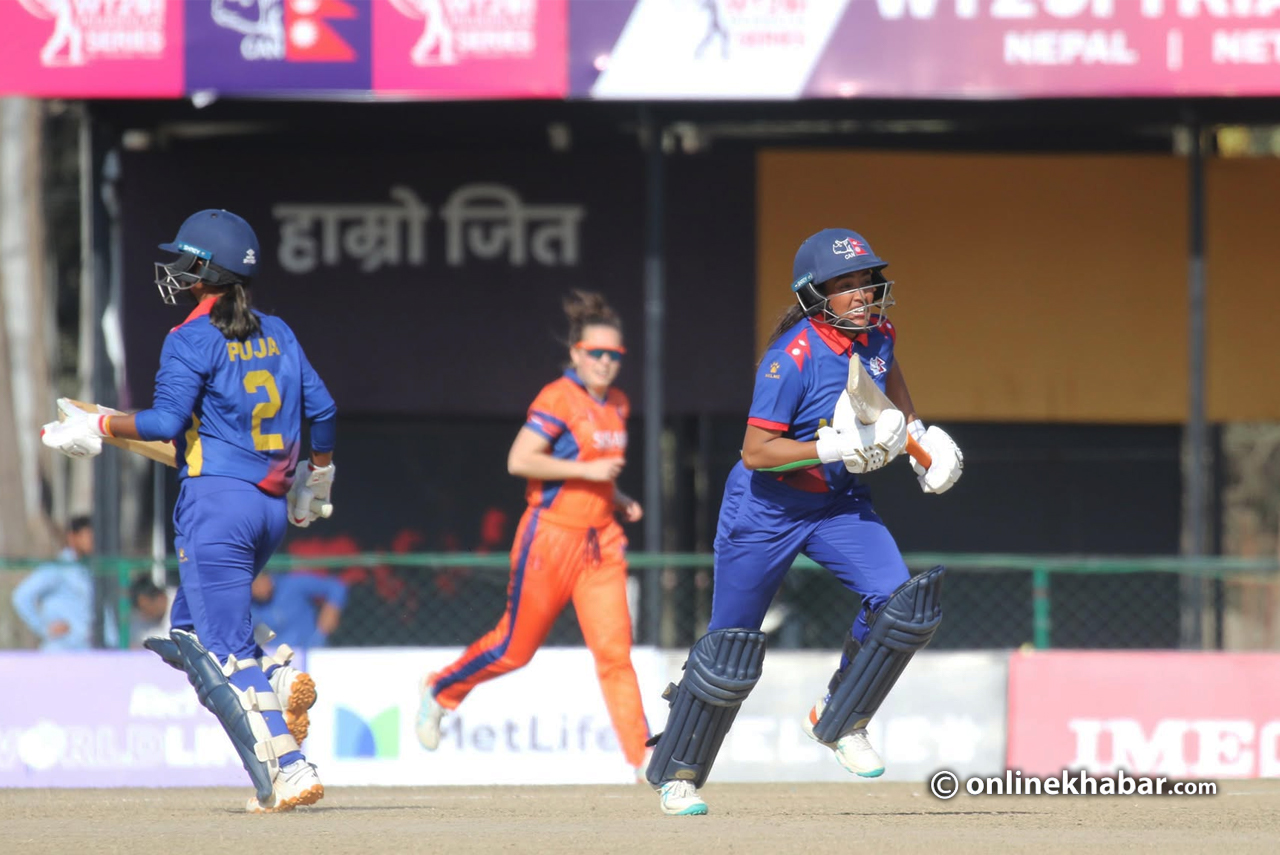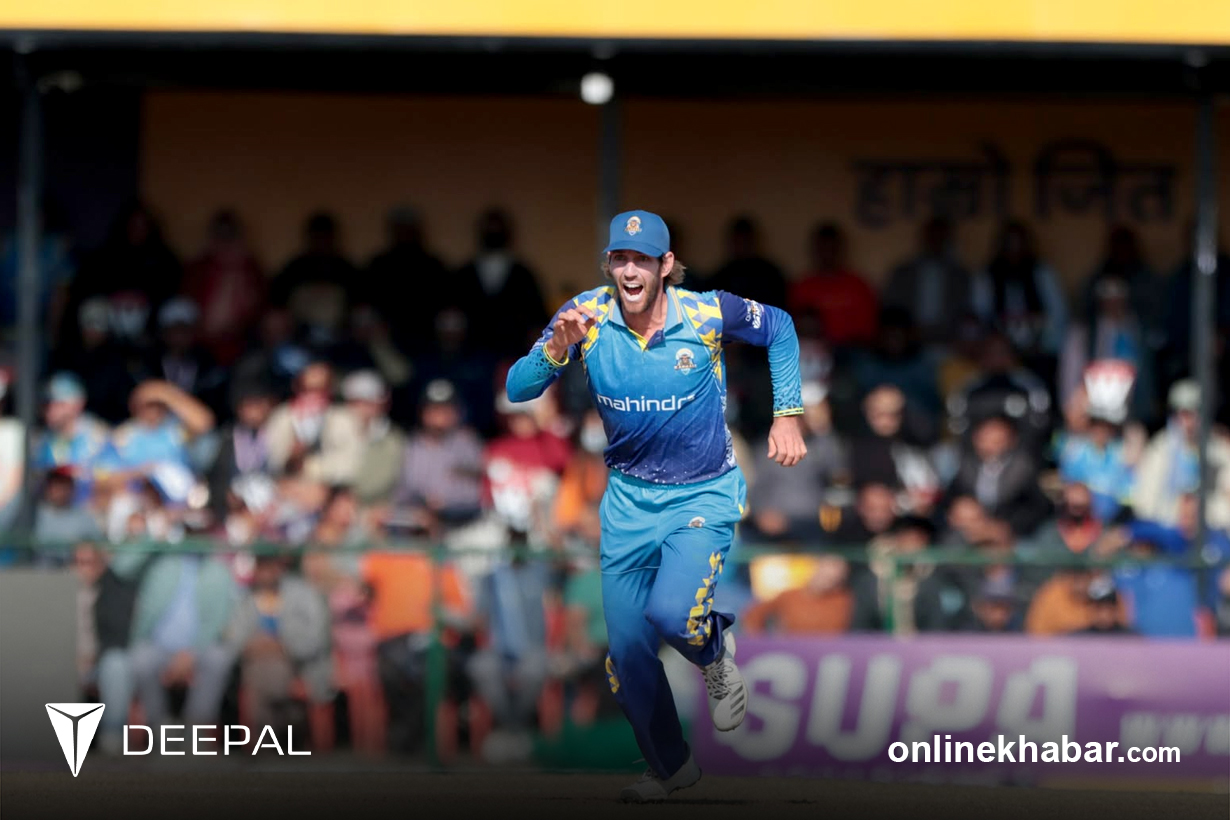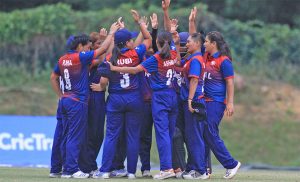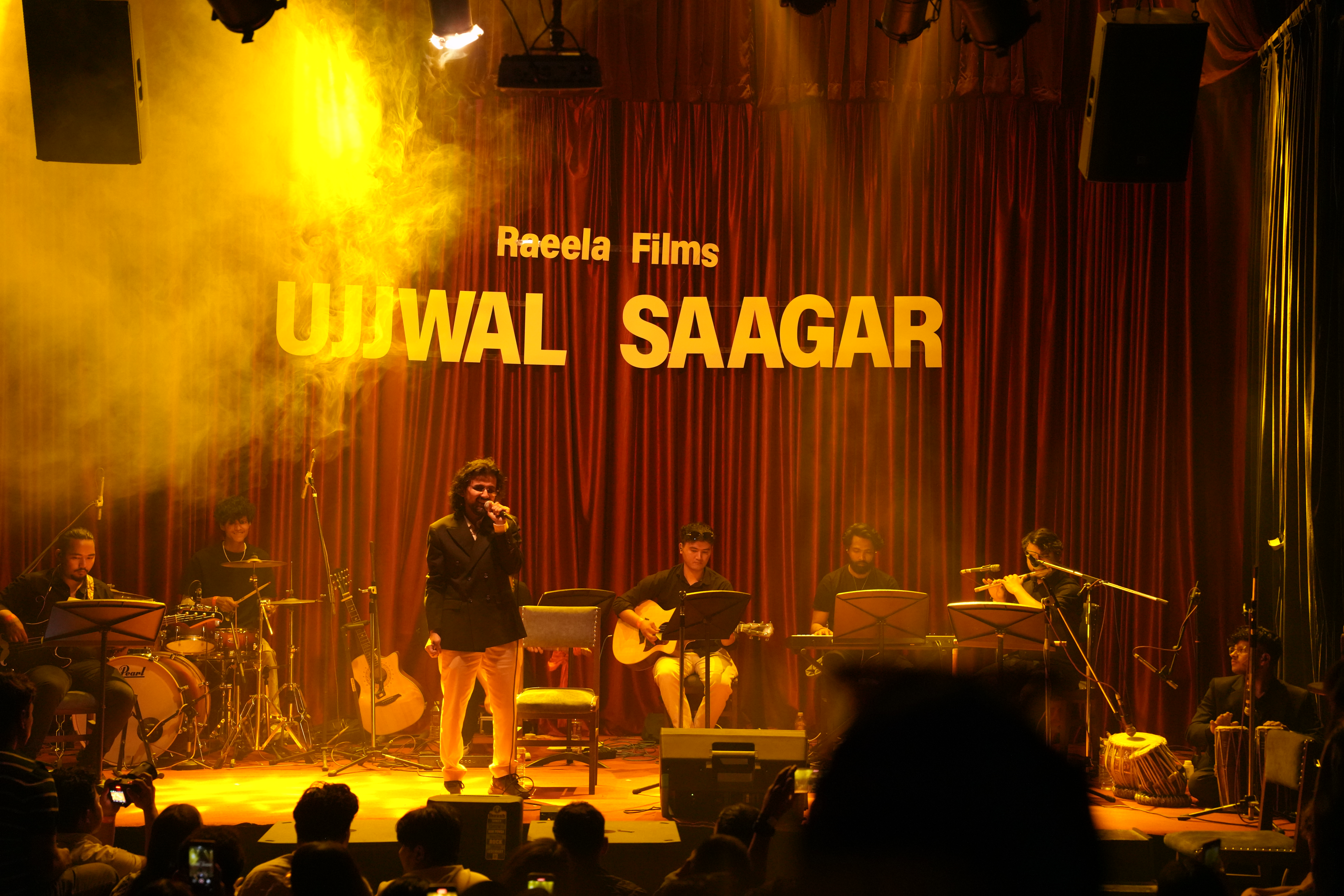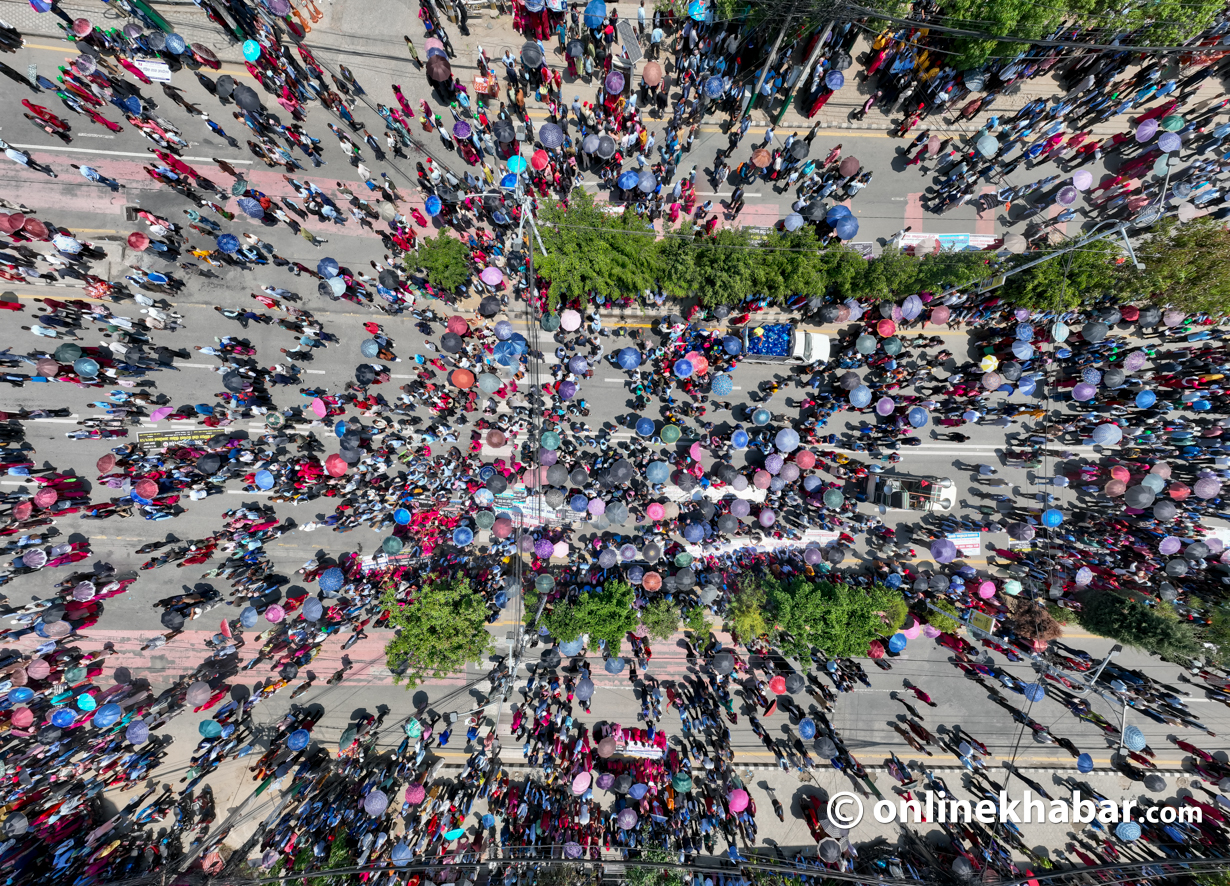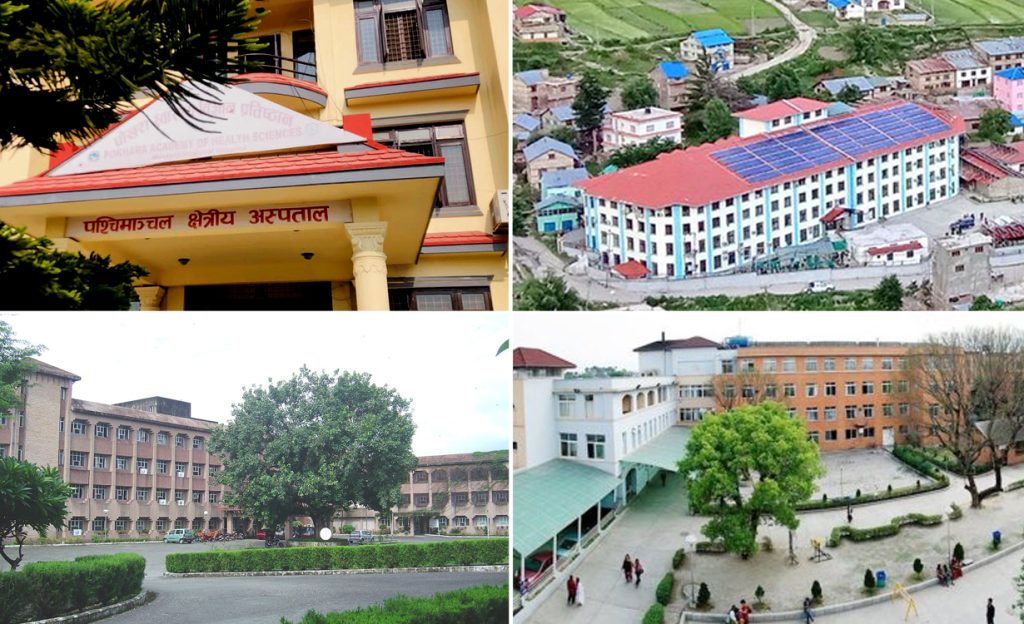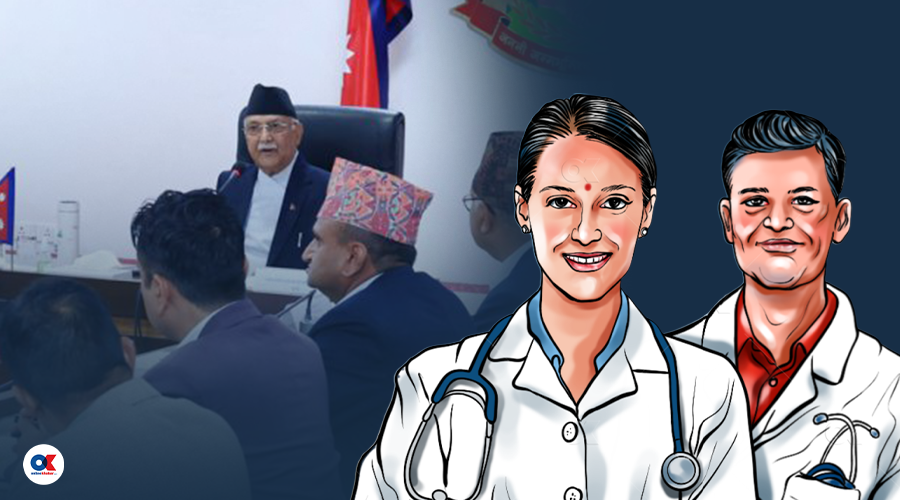
Gaushala 26’s life has not been easy lately. Her self-esteem ever since cricketer Sandeep Lamichhane returned to play cricket for Nepal has taken a massive hit. Seeing Lamichhane, a person accused of raping her, being applauded and adored during the ICC Men’s Cricket World Cup League 2 was hard for this minor.
Like in music, fan following and mass admiration are intertwined in such a way in sports that the scope of logic and facts is weakened. Consequently, the press has been regularly attacked from all sides for stating the fact that the former cricket captain is accused of raping a minor.
It was normal for the press to ask why the Cricket Association of Nepal called Lamichhane back into the team before the court gave its final verdict. For asking this question, the press has been attacked in an unusual and aggressive manner.
The press is not the victim in all this. They are just doing their job. The real victim is Gaushala 26, which is the code name given to the person who filed the case against Lamichhane. And, she feels a few recent incidents are further victimising her.
When the superstar is fallen
When I met her, I couldn’t make out if she was the survivor. She’d skipped a test in school and come to see me. She was in her school uniform and had thick glasses on. She even had her school ID on her. I asked her why she was wearing the card even outside the school.
“I didn’t realise I had it on,” she said and started to share her story.
Sandeep Lamichhane has been a household name in Nepal ever since he burst into the scene. He’s done things people can only dream of. Every one of his wickets has been cheered on by Nepalis all over the world. He was a superstar.
When the rape case was filed against him, I was shocked. Soon, the shock turned into disgust.
Tufan Neupane’s piece on Gaushala 26’s struggle and life after the incident on August 22, 2022, made me think if humans had lost touch with humanity. After reading the piece, I was numb, I was so emotional, that I had no words.
The recent victimisation

I talked to her about her mental state and how she was feeling. We talked about Lamichhane’s return to cricket and him being honoured by Pushpa Kamal Dahal, the country’s prime minister. It was clear she was not comfortable. She was still reeling from what has happened and when she spoke, her hands were trembling.
We started with Lamichhane meeting Dahal and the handshake. Asking her how she felt would have been stupid of me, but I wanted to know what was going on in her mind.
Our ministers, parliamentarians, our judges, our police, administration, journalists, academic venues and public spaces are still not as sensitive as they should be. That has resulted in us making many errors.
It is particularly difficult to speak out on a case that involves a high-profile defendant. In a society with a large number of people suffering from self-obsession, the issue of justice sometimes sounds unpopular. But that’s the job of the press. It must fulfil its duty.
“In order to have peace of mind, I write a journal every day. I also keep a note of the things I need to do the next day before I go to bed,” Gaushala 26 told me, “On February 23, I could not write a word. I was restless and went for a walk.”
She, nonetheless, noted a few things on her phone:
It was a good day because I met a counsellor.
But it was a very worst evening because I came to know he met the prime minister.
A rapist does not deserve so.
Despite noting these down, she was still restless and kept on walking. After a while, she felt good.
“I didn’t take the exam today. I did not even try. I have been a good student all my life and have received scholarships to study,” she said, “But nowadays, I cannot answer simple questions. I do not remember anything. Sometimes, the cup slips from my hand without me realise it.”
The big question

Arguing in court does not have the same feeling. Lamichhane has seven lawyers pleading for him while Gaushala 26 only has two. Her lawyers do not get a fee from her to fight the case. “I have no money to give them.”
“I have told them to not think of this as an ordinary case. This may be just one of many issues for them,” she told me, “But for me, it is everything. Winning this case will bring back the dignity that died the day I was raped by Sandeep Lamichhane.”
The girl said she wanted to share her story and that is why she meets journalists. “We live in a society that will not believe a girl was raped until she dies,” she said, “But, I want to tell the prime minister that I feel hopeless. I know why people do not speak on this issue. Sandeep is a celebrity and the prime minister put a garland over his neck while I have to hide myself every day.”
“In your eyes, both of us are citizens of your country. You met Sandeep. Will you meet me?” she said, “Prime Minister, while you are going around meeting rape accused, is it not time you met survivors too?”
Gaushala 26 told me she wanted to share how the celebrated cricketer ruined her life. “I want to tell you how the country’s reputation is being tarnished because of him,” she sometimes seemed sophisticated in her language, “I would like to tell you about what perceiving the vagina as a symbol of a girl’s prestige has cost the daughters in our society.”
“How many people like me are hiding, Mr Prime Minister? Meet me and others like me who are barely living,” she said, “He took everything from me. Sometimes I think how do I continue to live?”
The wait for justice

But Gaushala 26 knows she has to live.
“I think I have to live the rest of my life with self-respect so that he does not think he won. If Sandeep gets away with this, he will do the same thing to someone else,” she said, “So will other predators like him. Do not let this happen, Mr Prime Minister.”
She said she was not fighting to win her case; she was speaking so that other victims would gather the courage to speak for themselves in the future.
“Mr Prime Minister, why do I have to live in fear and stay in hiding? What wrong have I committed?” she said, “My parents do not understand me. They pressure me to accept the money I am being offered to settle the case. This society does not understand me and survivors like me. They do not understand why people like me seek justice. You also do not understand.”
Gaushala 26 said her friends from her old hostel knew how miserable her life had become. They came to meet her for the first time; she was so happy to see them. “But they did not ask me how I was doing. Instead, they asked me to return the clothes I had borrowed and said they had come to get that. I was speechless and felt very sad.”
She has been restless these days. “My tests are ongoing. But I cannot remember anything I study. I scroll through social media endlessly and stare into the abyss. Sometimes I fall asleep doing that. But there are days when I cannot sleep at all.”
Deprivation of dignity
Gaushala 26 said when she walks around wearing a mask and glasses, those who see her feel uncomfortable. Some even tell her to cover her head too.
“What do they know about how I feel inside? What do they know why I have to walk around like this?”, she said, “They ask me why I do that and I reply to save myself from the dust.”
“I feel sad thinking about my family. When I was a child, my parents fought a lot. Their relationship ruined my and my brother’s childhood. I tried not to think about that and thought about something else. Then started scrolling through social media.”
She continued, “There I saw the news about Sandeep. He has been stating his innocence and how he wants to contribute to the team’s success. The Prime Minister shaking his hands appeared on my timeline shortly after.”
Gaushala 26 feels this is a big game of power here.
“Maybe if the court acquitted him, at least I would have understood that this is how things happen in Nepal. Even if he is acquitted, I will understand he won using his influence and power,” she said, “Because I know, what the truth is. Sandeep Lamichhane is a rapist.”
“He ruined my life and walks around like he has done nothing wrong. He is being celebrated like he’s a hero, with vermilion powder and garlands, while I have to hide in broad daylight like I am the culprit.”
“Mr Prime Minister, tell me am I the culprit? If so what is my fault?”
This story was translated from the original Nepali version and edited for clarity and length.






